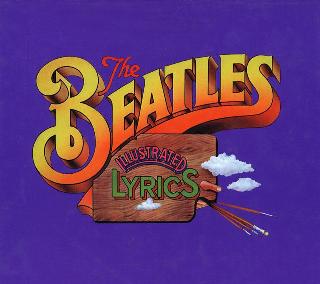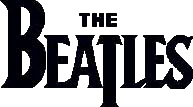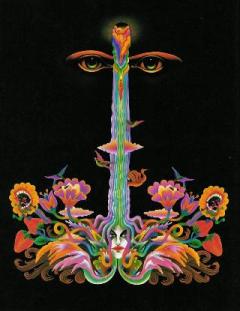Index
Home
Vorige
Get Back
Composer(s) : Lennon and McCartney
Year : 1968
Chords/Tabs: Get Back
Notes on "Get Back" (GB2)
KEY A Major (Mixolydian)
METER 4/4
FORM Intro -> Verse -> Refrain ->
Break (guitar solo) -> Refrain' ->
Break (piano solo) -> Verse -> Refrain ->
Break (guitar solo) -> Refrain' -> Outro
GENERAL POINTS OF INTEREST
Style and Form
- "Get Back" exemplifies a kind of stylized Blues that is one of the
lasting Beatles trademarks.
- Formalistically it is built out of a long sequence of short sections
that sound very similar (twisty little passages, all different ...,)
but which can be sorted into three classes based on closer inspection.
- "Get Back" is also one of a small set of Beatles songs that is
available to us in many versions and mixes. The casual fan gets
to hear both the single release and _Let It Be_ album version.
The film buff also gets to see parts of two out of three
live-on-the-rooftop runthroughs patched together. The bootleg
maven on the inner circle, though, gets to wallow in an assortment
of other outtakes. The more of these versions you are familiar with,
the less rigid a sense you retain of an ultimate "ur" version of
the song.
- In this note we'll focus on the two official releases, offering some
limited references to the additional versions. A more thorough cataloging
of those other versions would make for a lovely sidebar that is
beyond our scope this Note (but which I'd be willing to tackle sooner
rather than later if I get a few emails encouraging me to do so :-)).
If you need a teaser on this topic, consider that in addition to the
takes already mentioned you have two early takes from Twickenham (one
of which features the infamous "No More Pakistanis" original lyrics) and
a later take at Apple with the lyrics sung alternately in pseudo German
and French.
- Some dates to keep in mind for now:
- GB album version, January 27 in the studio at Apple
- GB single version, January 28 in the studio at Apple
- The rooftop concert, January 30, (uh ...) on the roof at Apple
Melody and Harmony
- "Stylized blues" means three chords; I, IV, and flat-VII surrogating
for V. It also means 8-bar sections instead of the traditional 12-bar
frames.
- The tune fills the outline of an A dominant 7th chord with much emphasis
on the 7th on the top, and an unusual melodic center of gravity on 5.
The melodic "floor," in fact, is on 5, a full tenth below the ceiling
note.
- I label the home key as a Mixolydian dialect of Major because the
the tune under-emphasizes the bluesy minor melodic third you'd expect
by actually avoiding the 3rd degree of the scale completely.
Arrangement
- The ensemble of bass, rhythm and lead guitars, plus drums, and
electric piano is deployed in about as straighforward a manner
for live performance with no overdubs or post processing as you
might find this side of their first couple albums. Ironically,
though one indelibly associates the song with the rooftop concert,
both official releases come from studio takes made a few days before.
- Paul, of course, sings the single tracked lead. John joins him
briefly in the second refrain.
SECTION-BY-SECTION WALKTHROUGH
Intro
- The single version starts off clean with the downbeat of the intro.
The album track first sets the live mood with 20 seconds of tuning
instruments and candid sutdio chat which, according to Lewisohn, actually
happened in real time; the latter, a relative rarity among the several
sound bites of talk included on that album, most of which are flown
in from a different context.
- The intro is 4 measures long and efficiently establishes the home
key. Note how similar yet different it is compared to the other
three sections of the song:
|A |- |- |- G D |
A: I flat-VII IV
- Whenever the G & D chords appear in the fourth measure of a musical
phrase in this song, they are almost always heavily accented by the
ensemble. They also always, with only one exception noted below,
appear with the note A as a pedal tone beneath them in the bassline.
Verse
- The verse is eight measures long and features a neat, symmetrical
ABAB poetic pattern. Its harmonic shape is closed, both starting
and ending on I:
--------------- 2X --------------
|A |- |D |A |
I IV I
- The lead guitar provides a bluesy obligato lick in measure 4, following
the vocal part, every time this phrase is repeated.
- In contrast to both the refrain and break sections, the verse section
is notably, placidly, unaccented.
Refrain
- The refrain is a symmetrical eight measures in length and appears
in two variants.
- Refrains that follow a verse (#1 and #3) are as follows. Their
harmonic shape is open, starting on I and ending with a cadence
that motivates the return of I at the start of the section that
follows it.
--------------- 2X --------------
|A |- |D |A G D |
I IV I flat-VII IV
- A bluesy arpeggio (dominated in each case by either the guitar or piano
depending on which of them is going to have the next break solo) places
a syncopated accent in the first two measures of the above phrase on
the eighth note that falls between beats 2 and 3. The accents are
unemphasized in the first iteration of the four measures, but
this is more than made up for in the second iteration by the effort
of the entire ensemble.
- Refrains that follow a Break (call them refrain') are slightly different
in that the second phrase is NOT a rote repeat of the first phrase.
Harmonically this is the most open of the sections setting up its
plagal cadence with three preceding measures of I, and halting briefly
for rhetorical effect at the end of the last measure.
|A |- |D |A G D |
I IV I flat-VII IV
|A |- |- |D |
I IV
Break
- The break is also a symmetric eight measures long and looks
almost identical to the first Refrain variant; the main difference
being in whether or not you get those syncopated accents in the
first two measures of each phrase.
--------------- 2X --------------
|A |- |D |A G D |
I IV I flat-VII IV
- In all three breaks, the G & D chords in measure 4 receive very
sharp accents the second iteration of the phrase but sound almost
awkwardly under-emphasized in the first iteration. If this pattern
were not as consistent as it appears, I'd suspect some unintentionally
sloppy ensemble work in places.
- The first phrase of the first guitar break is the only place in
the song where G & D appear with their root notes in the bass. This
is consistent between the single and album versions, but not necessarily
so with the other outtakes of the song I've checked so far. Hmmm...
Outro
- The album version of "Get Back" doesn't have much of an outro. But
after the halt on IV at the end of the final refrain, we hear the two
sound bites which in reality are taken from the very end of the
rooftop concert; Paul's "Thanks, Mo!" and John's hope that the
group has "passed the audition." At least the bites make logical sense
in their new context even if they were recorded two days later.
The supposedly "complete" final rooftop performance of "Get Back"
released on Anthology 3 includes the Thanks sound bite, but inexplicably
omits the Audition. Even stranger, the widely bootlegged _Get Back_
album transfers the two bites to the end of the first track on the
album, "One After 909." Go figure.
- The single version of "Get Back" contains a fully developed outro
section built out of the music for one complete break with Macca
making funny talk instead of singing, followed by one last screamingly
sung refrain, and then fades out at the end. The continuation of this
January 28 take after where the fadeout appears was planned to appear
as the final track on the _Get Back_ album in what is often referred
to as either the "Reprise" or the "Laughing Coda."
SOME FINAL THOUGHTS
- In hindsight you'll notice how the release of several Beatles singles
seemed carefully timed as if to serve as a musical road sign, offering
the observant follower a clue to the new direction ever so slightly ahead
of the actual bend in the road. To the extent that you can trace this
pattern you have to wonder how much of a conscious decision lay behind it.
- "Get Back" (b/w Don't Let Me Down")
surely belongs to this group of
singles. But whereas singles like
"Paperback Writer/Rain"
or
"Penny Lane/Strawberry Fields
Forever" each signal a compositional
or stylistic leap in their wake, "Get Back" is musically rather
simple stuff by comparison; its particularly enduring significance
being more closely related to the chronicled history of the group per se.
- As we all know, the combined album and film project named after this
song was fated to end up as the painfully sad and the at times
excruciatingly well documented commentary on the group's inevitable
breakup. The final edit and mixdown of the Get Back materials was
aborted and indefinitely postponed in midstream until, almost a year
later, long after the recording of the valedictory _Abbey Road_
album, it was eventually post-produced and re-edited in order to
be released under the transmographied title (not to mention,
aptly reworded overarching message) of "Let It Be."
- While the chronological precedence of the Get Back period to the
Abbey Road album is well known, what is less harped upon yet is worthy
of at least as much attention is Get Back's proximity to the White Album.
The UK release of the White Album was on 11/22/68. In spite of all
the stories that leaked out about friction within the group during
_The Beatles_ sessions (up to and including Ringo's temporary walk
out ), few of us knew what was going on in the studio that following
January. Similarly who among us could have guessed what ultimate
change was being forecast by the appearance of the "Get Back" single
on 4/11/69.
Regards,
Alan (awp@world.std.com)
---
"... she gets it while she can." 021699#161
---
Copyright (c) 1999 by Alan W. Pollack
All Rights Reserved
This article may be reproduced, retransmitted, redistributed and
otherwise propagated at will, provided that this notice remains
intact and in place.
Ook op Past Masters, Vols. 2:
Ook op Let It Be:
Ook op Let It Be... Naked:
Ook op 1967-1970:
Ook op 1:
Ook op Love:
(c) 2024 Serge Girard


 (c) Alan Aldrigde, The Beatles Illustrated Lyrics
(c) Alan Aldrigde, The Beatles Illustrated Lyrics